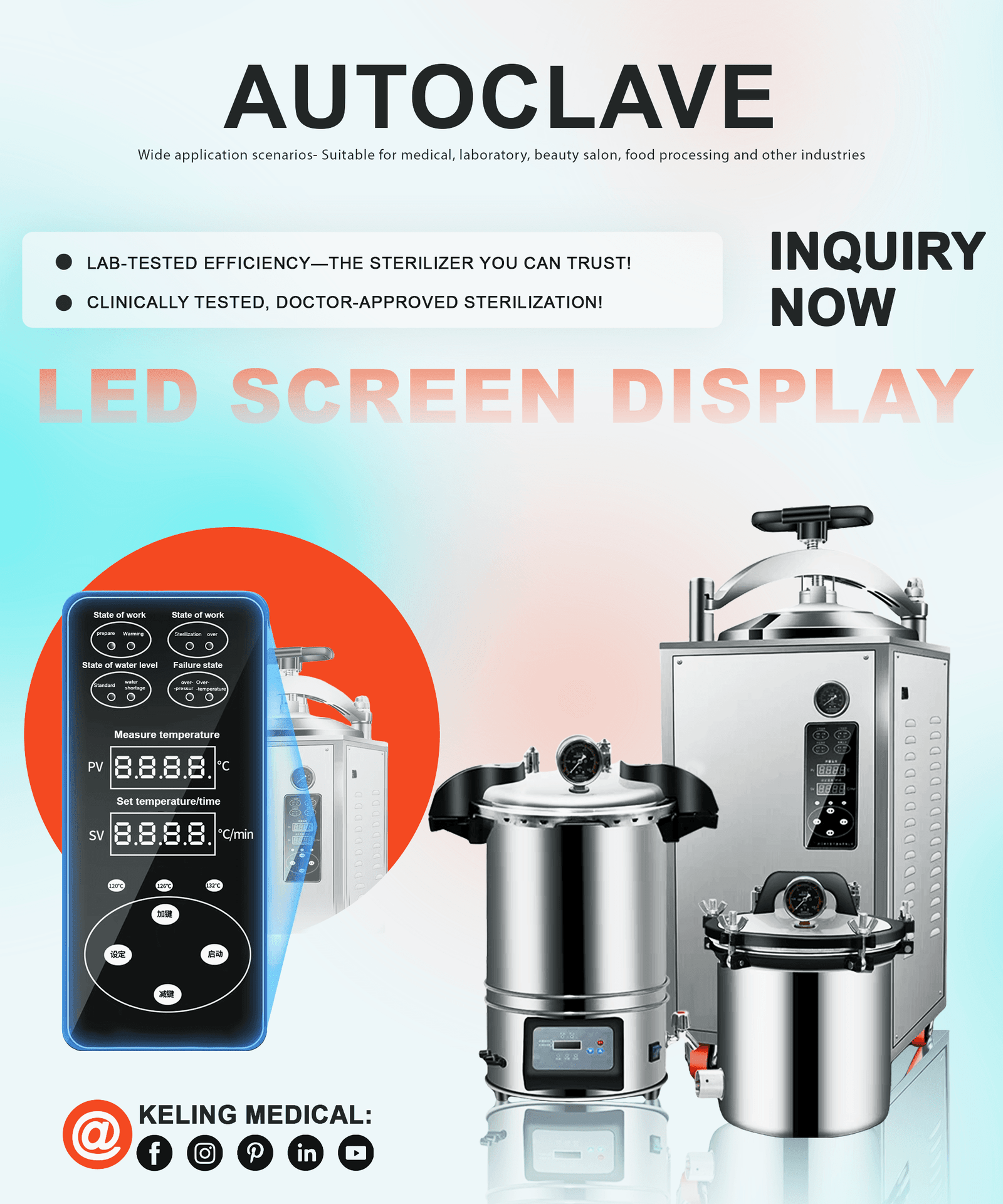
Medical device dealers, distributors, and procurement specialists will benefit from this article which explains why large capacity autoclaves should be included in your inventory portfolio.
Large capacity autoclaves serve as sterilization units that can process substantial amounts of materials in one operational cycle. While small autoclaves handle limited loads, large capacity autoclaves process bulky or high quantities of items which makes them perfect for industrial and medical purposes.
These autoclaves employ pressurized steam to kill bacteria along with viruses and various other microorganisms. These units’ durable construction combined with sophisticated capabilities enable them to sterilize surgical instruments alongside laboratory and medical waste as well as industrial components.
Bulk sterilization facilitated by large capacity autoclaves decreases the time and energy needed to process multiple small loads. Industries that need to sterilize many items or materials benefit significantly from large capacity autoclaves.
These autoclaves reduce operational expenses by sterilizing bigger loads within fewer cycles and saving on resources such as water and energy along with labor costs.
Large autoclaves have the capability to sterilize diverse materials such as surgical instruments, glassware, textiles and industrial components which allows them to serve multiple industry sectors.
High-capacity modern autoclaves meet rigorous sterilization requirements which deliver dependable performance for medical and industrial use.
Advanced control systems enable autoclaves to operate with ease while providing accurate monitoring and customizable sterilization settings.
Large capacity autoclaves serve essential sterilization needs across multiple industries.
Large capacity autoclaves provide essential sterilization for surgical instruments and medical linens at hospitals and clinics along with medical waste at surgical centers.
Drug manufacturers rely on autoclaves to sterilize production equipment and raw materials along with their containers.
Research laboratories need large capacity autoclaves to sterilize both laboratory tools and biohazardous waste along with culture media.
Food processors rely on autoclaves to achieve sterilization of packaging materials along with canned products and various consumables.
Aerospace and automotive industries employ large capacity autoclaves to cure composite materials and sterilize production tools.
Autoclaves with large storage capacities come in multiple dimensions to serve different requirements. Here’s a quick overview:
Ideal for medium-scale operations.
200-liter autoclaves are appropriate for use in hospitals as well as small pharmaceutical factories and research laboratories.
Compact yet capable of handling significant loads.
These autoclaves meet the needs of bigger businesses requiring high-capacity sterilization.
Large hospitals as well as industrial facilities and pharmaceutical companies often use this equipment.
Offers advanced features for enhanced efficiency.
Custom-built autoclaves for industrial-scale sterilization.
These autoclaves serve the aerospace sector along with automotive and large-scale food processing industries.
Tailored to meet specific operational requirements.
Large capacity autoclaves are essential for industries that require efficient and reliable sterilization. Whether you’re in healthcare, pharmaceuticals, or industrial manufacturing, these machines offer unmatched benefits in terms of efficiency, cost-effectiveness, and compliance with sterilization standards.
By understanding their sizes and applications, distributors and procurement specialists can make informed decisions to meet the growing demands of their clients.
If you’re looking for high-quality large capacity autoclaves, contact Keling Medical today.
A 200L autoclave is suited for medium-scale operations, while a 300L autoclave is designed for larger operations with higher sterilization demands. Both offer advanced features but cater to different load capacities.
Yes, many manufacturers offer custom-built autoclaves for specific industrial requirements, especially for sizes beyond 300 liters.
Modern large capacity autoclaves are designed with energy-saving features, making them cost-effective for long-term use.
These autoclaves can sterilize surgical instruments, laboratory tools, textiles, glassware, medical waste, and even industrial components.
Consider the volume and type of materials you need to sterilize, as well as your industry requirements. Consulting with an expert can help you make the right choice.
For more information about large capacity autoclaves, get in touch with Keling Medical today:
Email: inquiry@shkeling.com
WhatsApp: +8618221822482
Website: https://autoclaveequipment.com/
Our team is ready to assist you with all your autoclave needs. Reach out to us today!

The autoclaving process serves as an essential sterilization practice utilized across medical, laboratory, and research facilities to protect glassware and instruments through effective sterilization. High-pressure steam eliminates pathogens during this

The autoclaving process serves as an essential sterilization practice utilized across medical, laboratory, and research facilities to protect glassware and instruments through effective sterilization. High-pressure steam eliminates pathogens during this
The autoclaving process serves as an essential sterilization practice utilized across medical, laboratory, and research facilities to protect glassware and instruments through effective sterilization. High-pressure steam eliminates pathogens during this
The autoclaving process serves as an essential sterilization practice utilized across medical, laboratory, and research facilities to protect glassware and instruments through effective sterilization. High-pressure steam eliminates pathogens during this
The autoclaving process serves as an essential sterilization practice utilized across medical, laboratory, and research facilities to protect glassware and instruments through effective sterilization. High-pressure steam eliminates pathogens during this
The autoclaving process serves as an essential sterilization practice utilized across medical, laboratory, and research facilities to protect glassware and instruments through effective sterilization. High-pressure steam eliminates pathogens during this